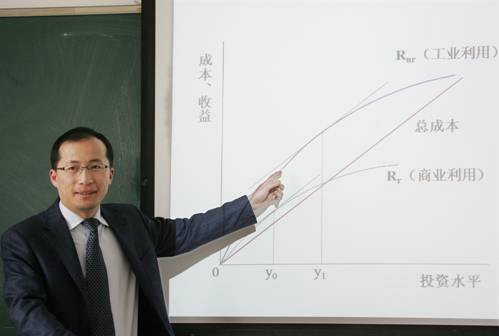
徐光东
学历: 经济学博士,法经济学博士
职称: 教授
研究领域:货币银行,金融监管,经济增长
主要讲授课程:经济学,法律与金融
外语语种:英语
出国经历:
2014年10月,获得荷兰鹿特丹伊拉斯谟大学法经济学博士学位。
2010年3月,参加意大利博洛尼亚大学发展、创新和改革(MIDIC)硕士项目10周年纪念大会,并作报告。
2010年1月,赴荷兰鹿特丹伊拉斯谟大学法学院访问。
2008年1月-7月,赴美国加州大学伯克利分校法学院访问
教材与专著
Philipsen, Niels, Weishaar, Stefan E., and Guangdong Xu, 2015. Market Integration: The EU Experience and Implications for Regulatory Reform in China. Berlin/Heidelberg: Springer.
Philipsen, Neils, and Guangdong Xu, 2014. The Role of Law and Regulation in Sustaining Financial Markets. Oxford: Taylor & Francis.
Xu, Guangdong, 2014. Does Law Matter for Economic Growth? A Re-Examination of the “Legal Origin” Hypothesis. Cambridge-Antwerp-Portland: Intersentia.
Faure, Michael, and Guangdong Xu, 2013. Economics and Regulation in China. London: Routledge.
代表性论文
Xu, Guangdong, 2022. “The Inequality-Debt-Crisis Nexus: Exploring the Missing Political Economy Dimension”, Journal of Australian Political Economy 88: 77-97 (SSCI).
Xu, Guangdong, 2022. “Is Rajan’s Hypothesis Confirmed by Empirical Evidence? A Critical Review”, Review of Radical Political Economics 54 (3): 334-350 (SSCI).
Xu, Guangdong, and Binwei Gui, 2021. “The Non-linearity between Finance and Economic Growth: A Literature Review and Evidence from China”, Asian-Pacific Economic Literature 35 (1): 3-18 (SSCI).
Xu, Wenming, and Guangdong Xu, 2020. “Understanding Public Enforcement of Securities Law in China: An Empirical Analysis of the Enforcement Actions of the CSRC and Its Regional Offices Against Informational Misconduct”, International Review of Law and Economics 61, 105877 (SSCI).
Xu, Guangdong, and Binwei Gui, 2019. “From Financial Repression to Financial Crisis? The Case of China”, Asian-Pacific Economic Literature 33(1): 48-63 (SSCI).
Xu, Guangdong, Xu, Wenming, and Binwei Gui, 2019. “Administrative Reform and Environmental Protection: The Case of China”, Journal of East Asian Studies 19 (1): 39-59 (SSCI).
Xu, Guangdong, Xu, Wenming, and Shudan Xu, 2018. “Does the Establishment of the Ministry of Environmental Protection Matter for Addressing China’s Pollution Problems? Empirical Evidence from Listed Companies”, Economics of Governance 19(3): 195-224 (SSCI).
Xu, Wenming, Chen, Jianwei, and Guangdong Xu, 2017. “An Empirical Analysis of the Public Enforcement of Securities Law in China: Finding the Missing Piece of the Puzzle”, European Business Organization Law Review 18 (2): 367-389 (SSCI).
Xu, Guangdong, 2015. “The Institutional Foundations of China’s Unbalanced Economy”, Europe-Asia Studies 67(9): 1351-1370 (SSCI).
Xu, Guangdong, et al., 2013. “Director’s Duties in China”, European Business Organization Law Review14:57-95 (SSCI).
Xu, Guangdong, 2011. “The Role of Law in Economic Growth: A Literature Review”, Journal of Economic Surveys 25 (5): 833-871 (SSCI).
贵斌威、徐光东、陈宇峰:《融资依赖、金融发展与经济增长:基于中国行业数据的考察》,《浙江社会科学》2013年第2期。
徐光东:《产权、法律与中国经济改革》,《政法论坛》2010年第1期。
席涛、徐光东:《理解金融危机下中国的经济风险与经济稳定》,《国际经济评论》2009年7-8期。
徐光东:《银行破产程序的经济分析》,《国际金融研究》2007年第3期。
徐光东:《企业重组程序的效率损失与破解》,《改革》2006年第12期。
徐光东:《制度变迁:从产权理论到中国经验》,《经济学动态》2005年第3期。